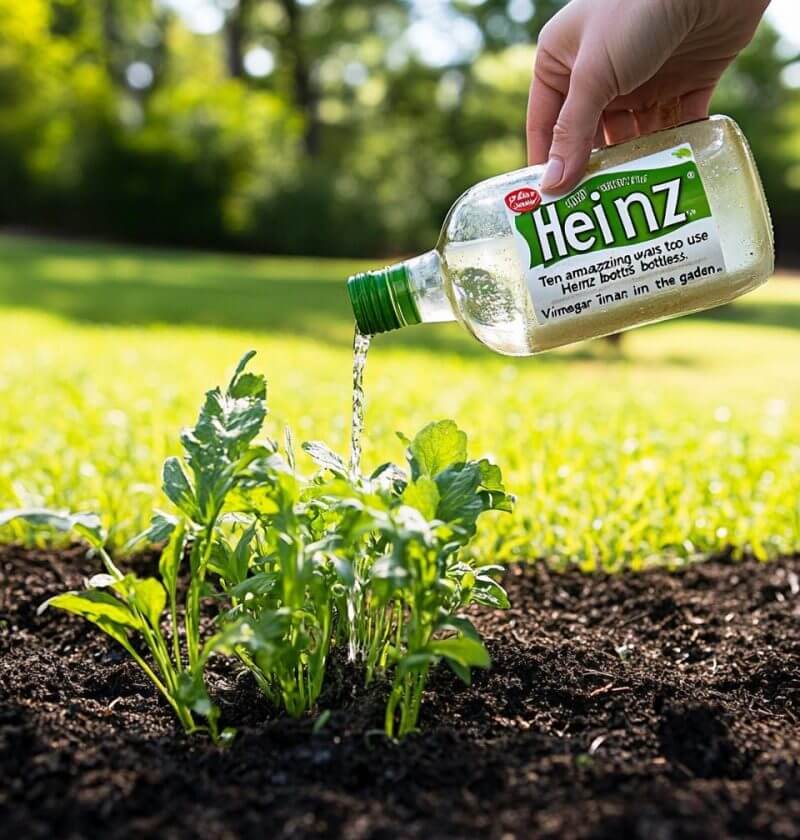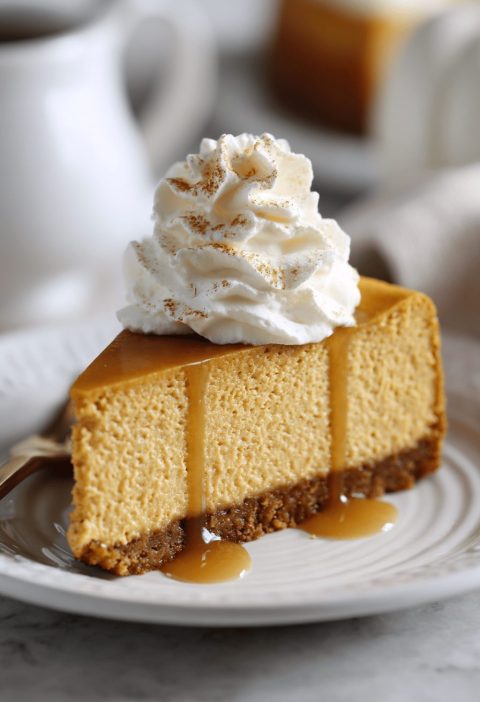Would you like to save this?
Vinegar, a common household ingredient, may just be the secret weapon your garden needs. Its natural properties make it an effective solution for a wide range of gardening challenges. From tackling weeds to boosting seed germination, vinegar can transform your gardening routine in a cost-effective and eco-friendly way. Here are ten practical ways to harness the power of vinegar to create a healthier, more vibrant garden.
1. Natural Weed Killer
Dealing with stubborn weeds? Vinegar can help. Its acetic acid content acts as a natural herbicide that dries out weeds, particularly in sunny conditions.
Recipe:
Mix 1 gallon of white vinegar with 1 cup of salt and 1 tablespoon of liquid dish soap.
Transfer the mixture into a spray bottle and spray directly onto weeds, ensuring full coverage.
Use on sunny days, as the sun boosts the vinegar’s effectiveness.
Note: Avoid spraying this solution on your plants, as it can harm any greenery it touches.
2. Ant Repellent
Vinegar is an excellent, non-toxic way to keep ants at bay. The strong scent of vinegar disrupts the pheromone trails that ants use to navigate, effectively driving them away.
Recipe:
Mix equal parts of white vinegar and water in a spray bottle.
Spray around ant trails, entry points, and nests.
Repeat every few days until the ants no longer return.
3. Treat Plant Fungus
Got plants suffering from powdery mildew or other fungal issues? Apple cider vinegar can help curb the spread of these fungi.
Recipe:
Combine 2 tablespoons of apple cider vinegar with 1 quart of water.
Spray the mixture onto affected plants every few days until the fungus clears.
Note: Test on a small area of the plant first to ensure it doesn’t cause any damage.
4. Clean Garden Fences and Tools
Over time, garden fences and tools can accumulate mold, mildew, and dirt. Vinegar is a natural cleaner that can make these surfaces look new again.
Recipe:
Mix equal parts of white vinegar and water.
Use a cloth or sponge to scrub down garden fences, wooden structures, and garden tools.
Rinse with water and let them dry in the sun.
5. Simple Soil pH Testing
Understanding your soil’s pH is key to a thriving garden, and vinegar can help you do a quick test to determine if your soil is alkaline.
How To:
Take a small amount of soil and place it in a container.
Add ½ cup of white vinegar.
If the soil fizzes, it indicates that the soil is alkaline.
Tip: Adjust your soil pH based on the needs of your plants. For acidic-loving plants, consider adding organic matter like pine needles.
6. Make a Fruit Fly Trap
Keep fruit flies at bay with a simple vinegar trap. This method is especially useful near fruit trees or compost bins where fruit flies tend to gather.
Recipe:
Fill a small bowl with apple cider vinegar and add a few drops of dish soap.
The vinegar attracts the flies, while the soap breaks the surface tension, trapping them.
Place the bowl near your fruit trees or compost area for best results.
7. Slug Deterrent
Slugs and snails can wreak havoc on your garden, but vinegar can help keep them away without the need for harsh chemicals.
Recipe:
Mix equal parts of white vinegar and water in a spray bottle.
Spray around the perimeter of your garden beds and directly on pathways frequented by slugs.
Be careful not to spray directly on your plants, as vinegar can harm them.
8. Boost Seed Germination
Some seeds, especially those with hard coats, can benefit from a little help during germination. Vinegar softens the seed coat, helping water penetrate more easily.
Recipe:
Combine 1 cup of water with 1 tablespoon of apple cider vinegar.
Soak hard-coated seeds in this mixture for 12 hours before planting.
Rinse the seeds with water before planting them in soil.
9. Flower Growth Enhancer
Give your blooming flowers a little boost with this vinegar-based solution. It provides nutrients and encourages healthy growth.
Recipe:
Mix 2 tablespoons of apple cider vinegar and 2 tablespoons of sugar into 1 quart of water.
Use this solution to water your flowers every couple of weeks.
Tip: This is best for cut flowers or acid-loving plants. Avoid using this on plants that prefer a more neutral pH.
10. DIY Aphid Spray
Aphids can be a nuisance in the garden, but a simple vinegar spray can help eliminate them without resorting to chemical pesticides.
Recipe:
Mix 1 part white vinegar with 3 parts water and add a few drops of dish soap.
Pour into a spray bottle and spray directly onto aphid-infested plants.
Repeat as needed, focusing on the undersides of leaves where aphids tend to hide.
Note: Test on a small part of the plant first to ensure it won’t cause damage.
Embrace Vinegar for a Greener Garden
Vinegar is more than just a kitchen staple—it’s a versatile and natural tool that can help you tackle common gardening challenges. From acting as a weed killer to repelling pests and boosting seed growth, vinegar offers a variety of solutions that are easy to implement and gentle on the environment. With these tips, you can enjoy a more vibrant, healthier garden without relying on harsh chemicals.
So, why not give these vinegar hacks a try? Experiment with these methods, and watch your garden thrive with the help of this simple yet powerful ingredient.







